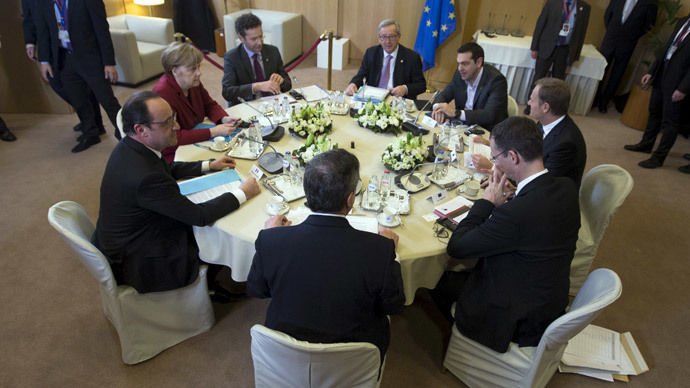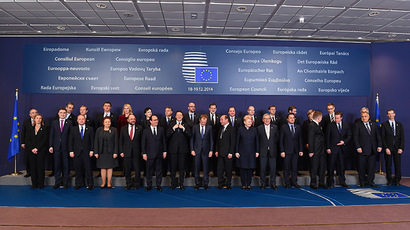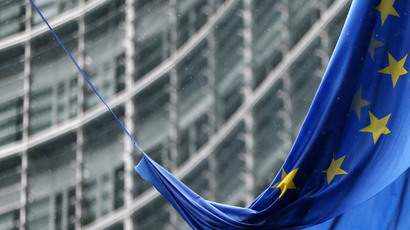EU rules out automatic extension of anti-Russia sanctions

EU leaders have failed to reach a consensus on the automatic extension of Russian sanctions which are due to expire in July. European Council President Donald Tusk announced that the decision will be linked to the full implementation of Minsk agreement.
“The duration of economic sanctions will be clearly linked to the full implementation of the Minsk agreement,” Tusk told a news conference following the first working session of the summit in Brussels.
“We have to maintain our sanctions until the Minsk agreement is fully implemented,” he reiterated, hinting that sanctions might be extended until the end of 2015 – a deadline for some of the Ukraine ceasefire agreement provisions.
Luxembourg's Prime Minister Xavier Bettel confirmed that any decision on further anti-Russia sanctions depends on the situation in Ukraine, and whether it develops positively or negatively.
READ MORE: The Minsk ceasefire deal, point by point
The Minsk agreement envisaged (among more urgent points on the de-escalation of violence) political reform in Ukraine to ensure decentralization and a special status for its rebel provinces. It requires Ukraine to adopt legislation which would provide permanent privileges to the Lugansk and Donetsk Regions, currently self-declared republics, by the end of 2015.
Last year, the European Union followed the line of the United States, imposing sanctions on Russia in several separate rounds, but it later found them to be causing increasing difficulties for its own constituent economies, which rely heavily on Russian energy supplies.
‘Glaring breach’: Minsk ‘violation’ sees Russia urge France, Germany to act on Ukraine
The EU hesitated to impose sectorial sanctions against Russia’s financial, defense and energy sectors until the downing of Malaysian jetliner in Ukrainian airspace in midsummer last year.
The key decision on whether to prolong sanctions – which requires unanimity – will likely be taken in the “nearest months”, the European Council said.
The decision to “link” the extension to the implementations of the Minsk agreement does not necessarily mean sanctions will be extended, a European diplomatic source told TASS. This declaration only signals that the EU is determined to secure a full implementation of the Minsk agreement, the source explained.
“Of course, this common position will affect the discussion on the renewal of sanctions at the next EU summit [in June], however, it does not predetermine the next meeting’s decisions,” the diplomat said.
The European Union is aware of the fallacy of sanctions against
Russia and is looking for plausible excuses for dropping them,
First Deputy Chairman of the State Duma Committee on Economic
Policy Mikhail Emelyanov said, RIA Novosti reported.
"This position of the European Union is a reflection of the
fact that introduction of the sanctions against Russia was
clearly a mistake. The EU is not ready to admit it publicly, but
it’s looking for any excuse to save face and give up
sanctions," Emelyanov told reporters on Friday.
He believes that because of the sanctions the European economy
has been losing much more than Russia.
"But most importantly, using sanctions as a means of changing
Russia's policy, as the EU leaders expected, has proved a
failure," the MP added.
MORE:














